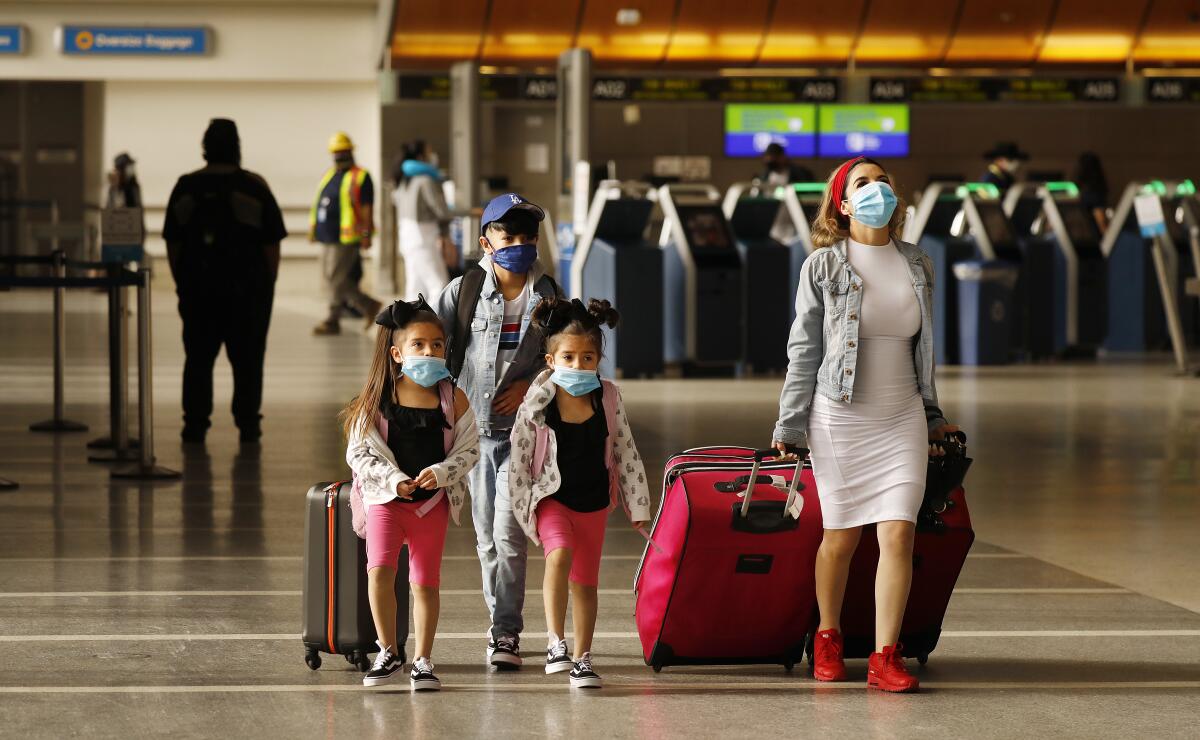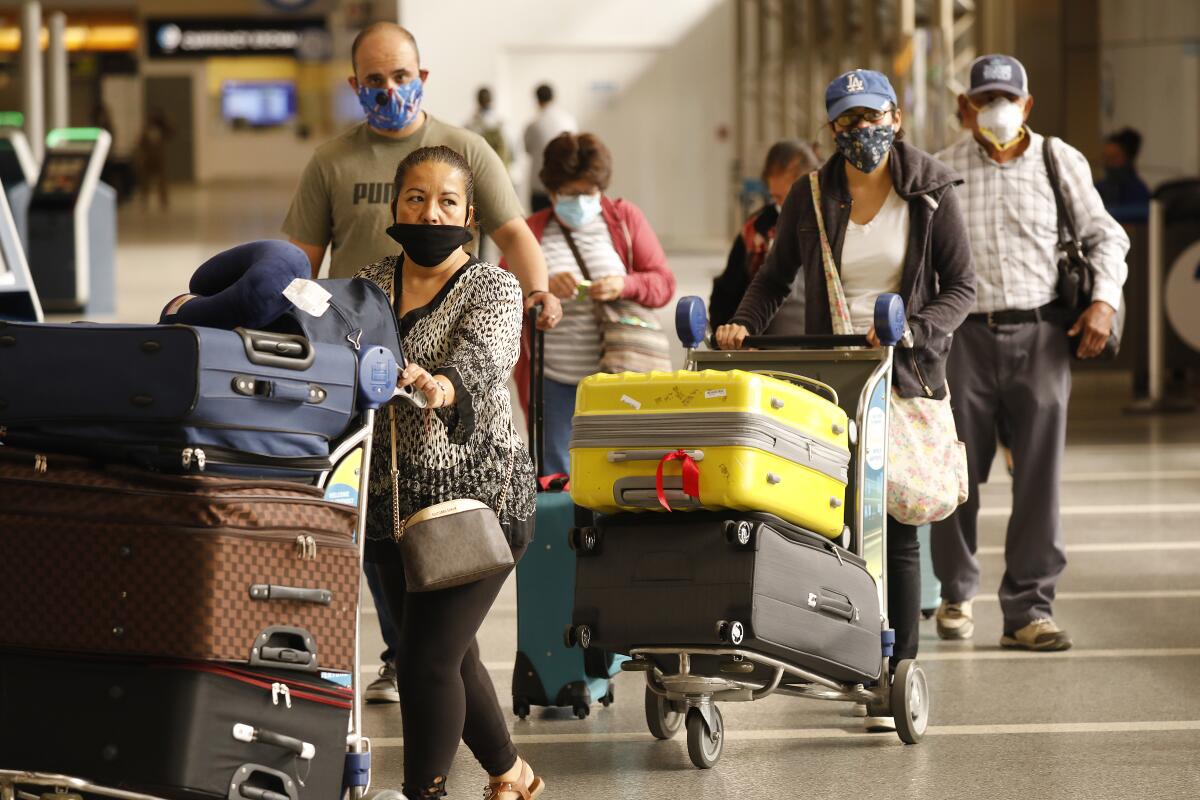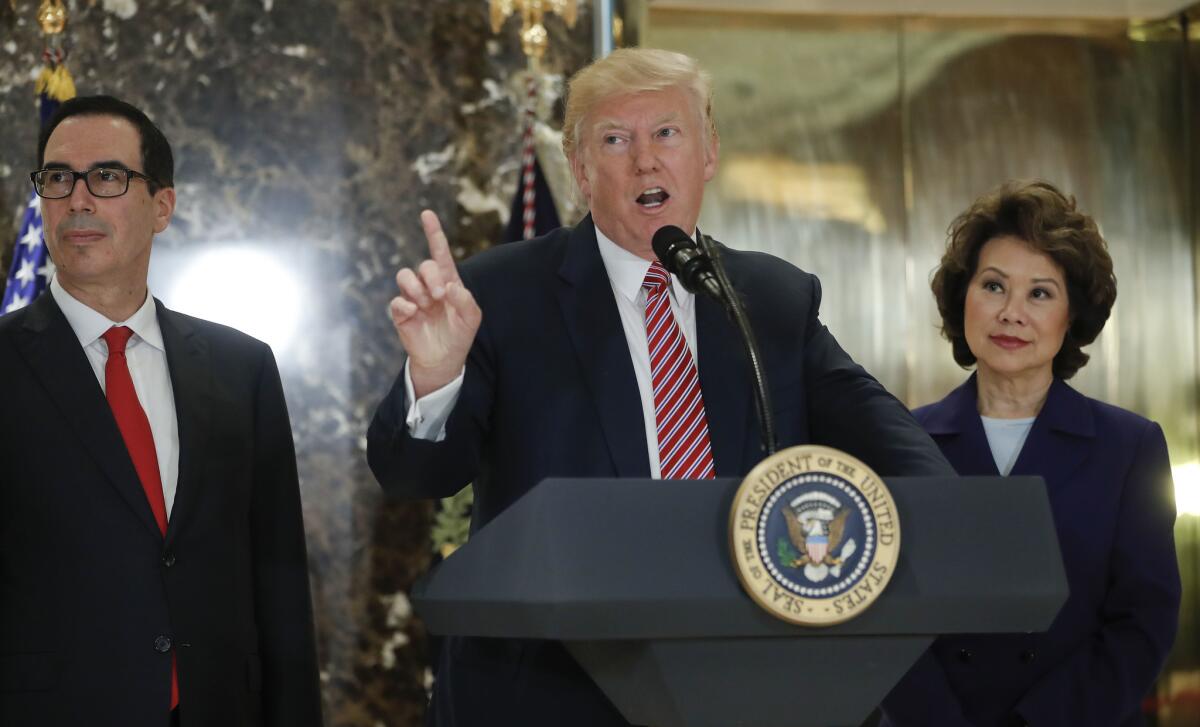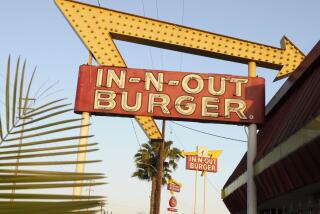What can airlines do if people take off their masks in flight? Not much, actually

Wearing a face mask has become as much a part of flying on commercial planes as cramming too much in the overhead bin, wrestling your seatmate for the armrest and trying to charm an extra bag of peanuts from the flight attendant.
The nation’s six largest carriers are requiring passengers to wear face masks or some other suitable nose-and-mouth covering during all flights to help slow the spread of the novel coronavirus.
Yet social media channels are littered with complaints about mask scofflaws of the skies traveling with apparent ease. Given that flouting mask mandates has become the secondhand smoke of the COVID-19 era, why are some passengers allowed to remain barefaced?
Airlines and the nation’s largest union of flight attendants explain that they are enforcing the mask requirement — but not with threats of fines or diverting flights. Instead, airline personnel are using diplomacy and de-escalation tactics. One airline said it may go as far as banning passengers from the carrier for life.
“In the unlikely scenario that someone refuses to wear a mask, we are not planning to divert a flight but would follow up with the guest,” said Ray Lane, a spokesman for Alaska Airlines.
The lenient enforcement attitude reflects several key changes in the post-pandemic aviation world, according to industry experts.
First, the requirement that passengers wear masks is a policy adopted by each airline and is not a federal regulation, like the rule against disabling an airplane lavatory’s smoke detector, which can be enforced under the threat of fines or prison time.
“Absent a federal requirement that passengers wear face coverings, airlines can do only so much,” said Henry Harteveldt, an aviation analyst with Atmosphere Research Group.
Another reason for the tolerant attitude is that demand for air travel is in a nosedive. About 500 flight attendants have been diagnosed with COVID-19, and there is little appetite among flight attendants or airline executives for a face-to-face confrontation with a passenger who refuses to wear a mask, nor is there a desire to divert a mostly empty plane that is already losing the airline money, industry experts said.
“Practically speaking, these flight attendants have enough on their hands,” said Mark Gerchick, former chief counsel of the Federal Aviation Administration.
In late April, New York’s JetBlue Airways was the first major U.S. carrier to require that all passengers wear masks during flights, with American, United, Delta, Southwest and Alaska adopting the same requirement in early May.
The airlines said they would deny boarding to anyone who wasn’t wearing a mask at the gate. Once on the plane, flight attendants would encourage passengers to keep the masks on except when eating or drinking.

But the Assn. of Flight Attendants wants the federal government to take the extra step of adopting an industrywide mask-wearing requirement, as well as cleaning and social distancing regulations for all U.S. carriers.
“Airlines are implementing policies on the fly, with essentially no coordination or direction from the federal government,” said Sara Nelson, president of the union, which represents nearly 50,000 flight attendants at 19 airlines. “We need a federal plan of action to implement safety measures on masks, social distancing, cleaning and more. Safety, health and our entire economy is on the line.”
So far, the U.S. Department of Transportation has shown little interest in imposing an industrywide mask policy.

In an April interview on Fox News, Secretary of Transportation Elaine Chao brushed off suggestions that the federal government should mandate masks on airlines. She noted that most commercial planes are now so empty that passengers can maintain social distancing inside of the cabin. Chao added that she prefers to leave policy questions about masks to the airlines and their workers.
“We encourage the unions and the management of the airlines to talk to one another,” she said.
But industry experts say that a federal regulation would be easier to enforce than the policies of an individual airline.
A passenger who violates the FAA ban on smoking on a plane or engages in “unruly behavior” can be fined up to $25,000 per violation, according to federal regulations. Meanwhile, a passenger who breaks an airline policy, such as boarding out of turn, can be booted off a plane and banned from ever flying on that carrier.
“The difference between the mask rule and the smoking rule is that the smoking rule carries the force of law,” said Madhu Unnikrishnan, editor of the trade publication Skift Airline Weekly. “As we don’t have a law requiring masks onboard yet, it’s up to airlines to set individual policy. And rather than face a fight onboard, they’re choosing diplomacy.”
JetBlue is asking its flight crew to “be sensitive to all situations, use their best judgment to maintain compliance while upholding our service standards and ... try to de-escalate issues onboard to the best of their ability,” airline spokesman Derek Dombrowski said. As a last resort, he said, customers who don’t follow the policy can be banned from flying JetBlue in the future.
On United Airlines, flight attendants have been asked to use their “de-escalation skills” to deal with any disturbance prompted by the mask policy. Flight attendants may also reassign a mask offender to a new seat away from other passengers, according to the airline.
On Southwest Airlines, employees and flight attendants “will respectfully request that customers abide by the policy,” and if they don’t, flight attendants will rely on their training in conflict management to resolve the dispute, airline spokesman Brian Parrish said.
Demand for air travel has dropped by more than 90% since March, but the number of passengers screened daily by the Transportation Security Administration has been rising slowly in the past three weeks. In a filing Tuesday with the Securities and Exchange Commission, Southwest Airlines reported that although overall bookings are down, the carrier has “recently experienced a modest improvement in passenger demand, bookings and trip cancellations.”
Flight attendants and airline representatives worry that travelers may be less inclined to wear masks as local governments across the country begin to lift coronavirus restrictions. For now, they said, passengers are largely abiding by the mask rules.
“Even as states are opening up, there’s a recognition that masks will be part of our new normal for some time,” said Taylor Garland, a spokeswoman for the Assn. of Flight Attendants.
More to Read
Inside the business of entertainment
The Wide Shot brings you news, analysis and insights on everything from streaming wars to production — and what it all means for the future.
You may occasionally receive promotional content from the Los Angeles Times.











